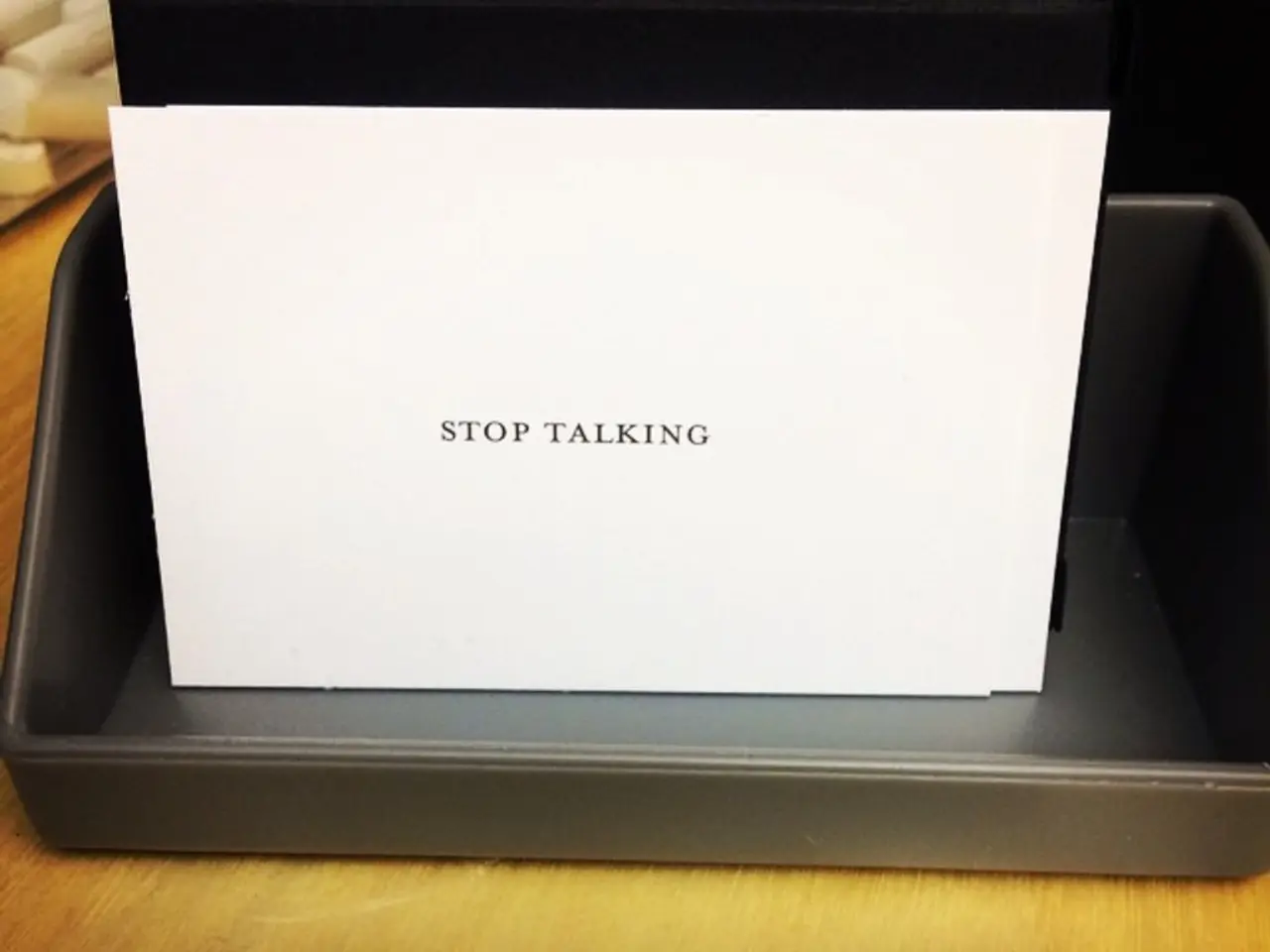Work-Related Exhaustion in Individuals with ADHD: Understanding the Causes and Strategies for Managing It
In a world where the hustle and bustle of the workday can leave many feeling drained, it's important to remember that adults with Attention Deficit Hyperactivity Disorder (ADHD) often face unique challenges when it comes to managing their energy levels. Practicing mindfulness, meditation, or deep breathing in the evening can help adults with ADHD relax and transition to a restful state, providing a much-needed "cool-down" for their brains.
A significant number of adults with ADHD experience chronic fatigue, with 62% reporting this issue. The exhaustion experienced after work is not a sign of laziness but rather a reflection of the energy they expend just getting through the day. Under-stimulation, like repetitive or boring work, can also be draining for adults with ADHD as the brain has to work harder to stay engaged.
Many adults with ADHD "mask" their symptoms by suppressing impulses, over-preparing, or mimicking neurotypical behavior to fit in at work, which can be mentally taxing. Self-regulation, such as inhibiting impulses, staying attentive, and switching tasks, is effortful for ADHD brains. As a result, after a workday, adults with ADHD often feel deep mental and physical exhaustion that can leave them unable to complete basic tasks.
Effective coping strategies for managing mental and physical exhaustion in adults with ADHD after a workday include a combination of workplace modifications, structured routines, energy management, and self-care activities tailored to ADHD-specific needs.
One key approach is structured flexibility and workplace adjustments. Using flexible work hours, break tasks into smaller steps, and creating an ADHD-friendly environment such as reducing sensory overload with noise-cancelling headphones or quiet spaces can help reduce mental fatigue. Clear communication and visual task management can further minimise ambiguity and cognitive load.
Another strategy is energy accounting and strategic scheduling. Tracking when mental energy is highest and scheduling demanding tasks during these periods, alongside intentionally allocating time and energy, can help adults with ADHD preserve their energy for the evening.
The use of routine and time management tools is also crucial. Keeping a consistent daily routine helps reduce the extra energy expenditure caused by unpredictability. Employing timers, calendars, and visual reminders to stay on task and avoid racing thoughts or impulsivity can further support this. Prioritising and breaking down larger tasks into easier manageable pieces can also help.
Regular recovery breaks and movement are essential. Incorporating structured breaks throughout the day and engaging in light stretching or breathing exercises during these breaks can help adults with ADHD maintain their energy levels throughout the day. Exposure to natural light especially after work can improve circadian rhythm and help reset energy levels.
Self-compassion and realistic expectations are also vital. Adjusting personal standards to prevent perfectionism and negative self-talk, celebrating small achievements to build motivation, and ensuring adequate sleep, exercise, and nutrient-rich foods can all support overall energy levels.
Engaging in enjoyable activities is another effective strategy. Doing things you love after work helps combat mental exhaustion and ADHD paralysis by recharging motivation and reducing stress.
Implementing these combined approaches — environmental modifications, energy-focused scheduling, structured self-care, and realistic goal setting — can effectively reduce both mental and physical exhaustion in adults with ADHD after a workday. Improving sleep quality can directly cut down daytime fatigue for adults with ADHD, so it's important to establish a good sleep routine and address any sleep issues.
- In the workplace, adults with ADHD may struggle with under-stimulation, as the brain has to work harder to stay engaged in repetitive or boring tasks, leading to mental fatigue.
- Self-care activities, such as practicing mindfulness, meditation, or deep breathing, can help adults with ADHD unwind and transition to a restful state, providing a "cool-down" for their brains after a workday.
- Effective coping strategies for managing mental and physical exhaustion in adults with ADHD after work include a combination of workplace modifications, structured routines, energy management, and self-care activities tailored to ADHD-specific needs.
- One key approach is structured flexibility and workplace adjustments, such as using flexible work hours and creating an ADHD-friendly environment to reduce mental fatigue.
- Energy accounting and strategic scheduling, where tasks are scheduled during periods when mental energy is highest, can help adults with ADHD preserve their energy for the evening.
- Regular recovery breaks and movement, incorporating structured breaks for light stretching or breathing exercises, can help adults with ADHD maintain their energy levels throughout the day.
- Implementing a combination of strategies, including environmental modifications, energy-focused scheduling, structured self-care, and realistic goal setting, can effectively reduce both mental and physical exhaustion in adults with ADHD after a workday, with improving sleep quality being a crucial aspect of this.




